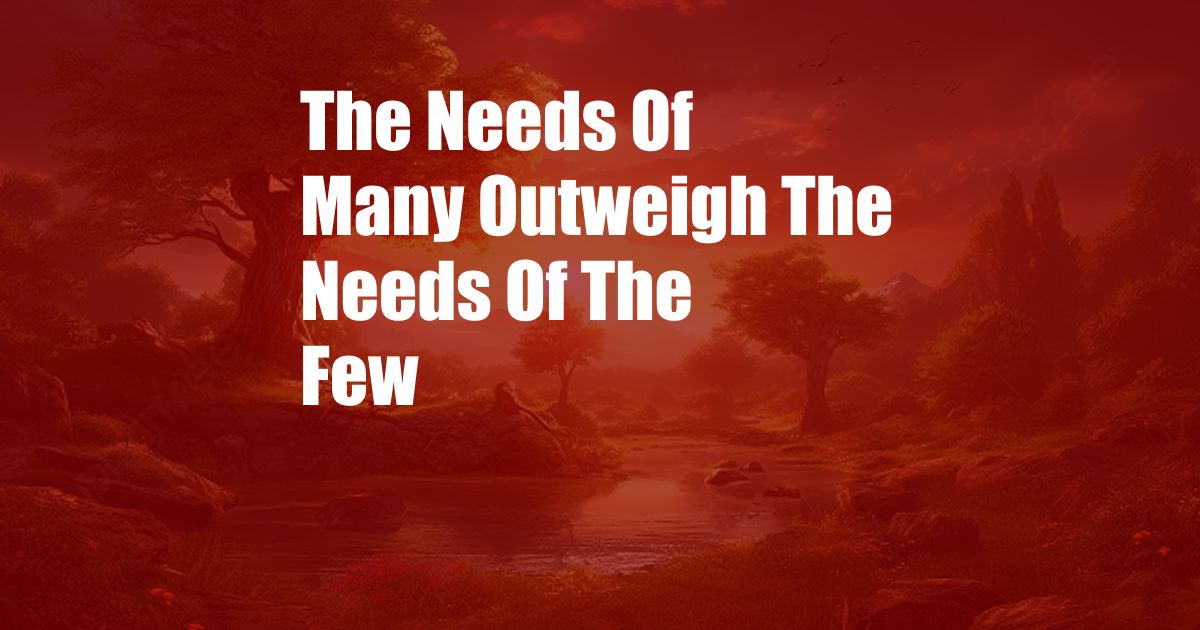
The Needs of Many Outweigh the Needs of the Few
Have you ever been in a situation where you had to choose between what was best for you and what was best for the group? It’s a tough decision, and there’s no easy answer. But in many cases, we’re told that the needs of many outweigh the needs of the few.
This is a principle that has been used to justify everything from taxation to war. The idea is that when the needs of the group are at stake, we must all be willing to sacrifice our own individual desires for the greater good. It’s a noble ideal, but it’s not always easy to put into practice.
Balancing Individual and Group Needs
In a perfect world, we would all be able to get what we need without sacrificing the needs of others. But in reality, there are always going to be conflicts between individual and group interests. The challenge is finding a way to balance these interests in a way that is fair and equitable.
One way to do this is to consider the long-term consequences of our decisions. When we make decisions that benefit the group in the short term, we may be sacrificing the long-term needs of individuals. For example, raising taxes may be necessary to fund important social programs, but it can also place a burden on individuals who are already struggling to make ends meet.
It’s also important to consider the distribution of benefits and burdens. When we make decisions that benefit the group, we need to make sure that the benefits are shared equitably. For example, if we’re going to raise taxes to fund a new social program, we need to make sure that the program is designed to help those who need it most.
Conclusion
The needs of many outweigh the needs of the few is a principle that is often used to justify decisions that benefit the group as a whole. However, it’s important to remember that this principle is not always easy to put into practice. When we make decisions that affect the interests of both individuals and groups, we need to carefully consider the long-term consequences and the distribution of benefits and burdens. By doing so, we can make decisions that are fair and equitable for everyone involved.
Are you interested in learning more about the topic?
FAQs
-
What are some examples of the needs of the many outweighing the needs of the few?
- Raising taxes to fund social programs
- Rationing resources during a crisis
- Imposing curfews to prevent crime
-
How can we balance the needs of individuals and groups?
- Consider the long-term consequences of our decisions
- Make sure that the benefits of group decisions are shared equitably
- Seek input from all stakeholders before making decisions
-
What are some tips for making decisions that are fair and equitable?
- Be transparent about the decision-making process
- Consider the different perspectives of those involved
- Weigh the benefits and burdens of each decision
- Be willing to compromise when necessary